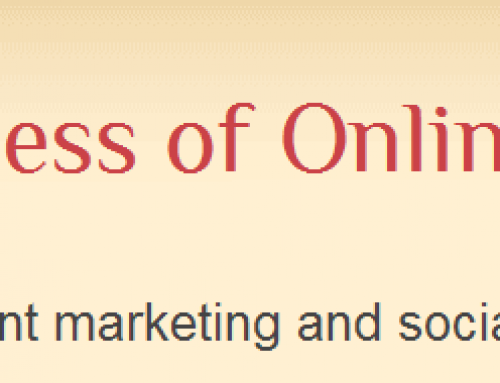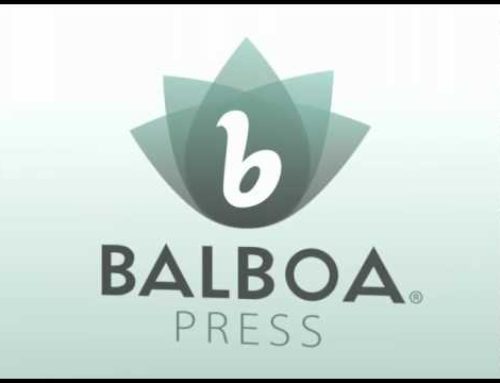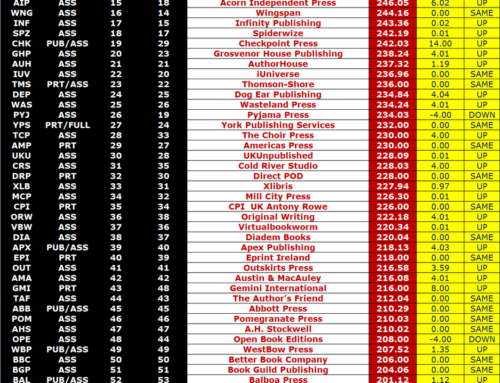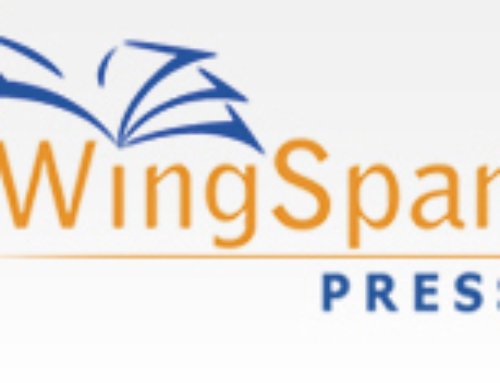 Matador is the self-publishing imprint of Troubador Publishing based in Leicester, England. Troubador itself is a commercial publisher founded in 1990, but the Matador imprint for self-publishing authors was launched in 1999. Matador offers self-publishing authors a wide range of services, from the design and production of a book, through to marketing and distribution.
Matador is the self-publishing imprint of Troubador Publishing based in Leicester, England. Troubador itself is a commercial publisher founded in 1990, but the Matador imprint for self-publishing authors was launched in 1999. Matador offers self-publishing authors a wide range of services, from the design and production of a book, through to marketing and distribution.
In the past few years there are signs that this kind of publishing model (a commercial publisher also offering self-publishing services) may form the basis of where the future lies. If you like, it has become a kind of hybrid of publishing or centre ground. I have seen companies in the USA and UK move from author solutions service to commercial publisher, and vice verse. I have seen small companies start out offering services to self-published authors and then morph into a commercial publisher offering standard contracts once they have solidified their finances and established their name. With the current economic climate, I predict we will start to see other established publishers go the other way, and offer self-publishing services as a way to remain a viable business.
Matador’s parent, Troubador Publishing began by publishing academic texts and Italian studies before expanding its list to include books on ethics, communication, technologies and fiction. In 1999, together with the experience and guidance of Managing Director, Jeremy Thompson, they introduced the Matador imprint. What sets Matador apart from many of its competitors is that they are selective about taking on a book. They edit, design and product it to the same quality as if it were one of their Troubador titles. Crucially, it means Matador can provide dedicated book distribution, backed by a sales team, to more than 200 of its top self-published titles every year through Orca Book Services. The Troubador site displays and promotes their Matador list alongside their trade listed books in some very nifty and eye-catching book carousels.
From the Matador site:
“There are lots of companies out there who will offer to ‘Publish your book and make it available worldwide’, but producing a book and giving it an ISBN number (all that is needed to theoretically make it available worldwide) is relatively easy. Few will actually be choosy about what they publish, concentrate hard on proper design and production, and then actually get out there and sell your book.”
It should be pointed out that Matador, like Angela Hoy’s Booklocker.com, and a few others, expect authors to have brought their manuscript to as high a standard as possible before submission, including using a critical assessment service or writers’ workshop group. In the long run, this can and should work in favour of authors who agree and contract a list of self-publishing services from Matador. Matador has the responsibility to protect the reputation of their commercial branding, but critically, the publisher has an existing and established distribution channel to high street stores, far beyond just a reliance on online sales like many other author solutions services.
“Our aim is to produce great books, and to get them into the hands of readers. And it is our reputation that’s at stake too, as we have our own publishing programmes to consider.”
http://www.troubador.co.uk/image/pdf/Matador-info.pdf
The lack of brick and mortar distribution is one of the most significant disadvantages companies offering self-publishing services to authors suffer from. Matador take the model of author-publisher partnership and replicate much of what exists in the established world of commercial publishing. In this regard, Matador help to level the playing field of book sales a little more fairly for the self-published author.
As always, the author has to deliver a finished book which might actually have significant marketability and be best able to utilise a distribution channel to find real shelf space and achieve sustainable over-the-counter sales. There is a fair argument in saying that this is the case with any kind of publishing. It is, but partnership publishing is not just any kind of publishing. An author undertaking this kind of publishing endeavour may potentially be shelling out four figure sums from their own pockets, but the author can rely on a sound publishing business with all that comes with commercial publishing—that is commitment and financial investment by both parties. As Matador advise on their website:
“Most authors who publish with Matador are serious about their self-publishing, wanting either a high quality book or a real chance at getting their work widely distributed and read. For authors whose work we are happy to publish, we undertake as much or as little of the publishing process as required. From design, typesetting and printing through to marketing and distribution (direct through our sales reps, Star Books, and through Orca Book Services, our distributors); our aim is to publish a book that you are proud of… and then to get it sold!”
Matador, and indeed, any partnership publisher, should not necessarily be the first step for an author who is green about the publishing business or unsure of the role of an author pre and post publication. Entering into a contract with a partnership publisher is a business deal centred around producing a quality and marketable book, maximising sales, and extracting the most from the author’s and publisher’s financial investment and experience. Matador advises authors considering them for their book:
“We prefer authors who are considering publishing their own work to find out as much as they can before they come to us.”
No bell ringing or town crier here then! No ‘grab a trolley and come on in’ or ‘just pick what catches your eye’. This sounds serious. And Matador is right—it is. At a time when decent people are losing their jobs and worrying about mortgage payments—it is refreshing to find a company who says to their potential authors and customers, ‘Hold on there; how much thought have you really given this?’
In as much as many self-publishing companies laud upon the dream of literary success and riches, Matador seem to do the utmost to deliver home to an author the stark realities of self-publishing, yet, maintain the idea that it is personally fulfilling and potentially profitable with the right kind of book. At the best of times, partnership publishing is a hard recipe and blend to get just right.
Matador take the commercial publishing model and apply it to self-publishing ‘as is’. Every step of the standard publishing process is available as a paid service, from assessment, editing, design, layout, print estimation and production, marketing and promotion. It is left in the hands of the author to decide what services they want. With Matador, it does still remain up to the author how many services are used, but, I suspect, the more Matador become involved with the book as a commerce project, and the more services undertaken by the author, the closer both parties engage in the process of partnership publishing.
The flexible services Matador offer allows the self-publishing author to have their book published with a Matador ISBN, or alternatively, Matador will purchase ten from Nielsens at £106 under the author’s specified publishing imprint name. The author gets a minimum block of ten rather than just one. They author will have ten registered in the name or their publishing imprint, i.e., Joe Blogs Publishing. In the USA, there are agents assigned by RR Bowkers, the official ISBN agency, who can issue single barcodes. One of these companies is Selfpublishing.com, run by RJ Communications. There has been talk in 2008 of RR Bowkers setting up a specific sub department to deal with self-publishing companies and authors because of the explosion in the past few years of self published titles. As of yet, this has not happened, but prices of blocks of ISBN’s have started to decrease.
Let us move to the potential costs for an author with Matador. Matador do include publishing cost examples on the website and there is a specific webpage which takes the author through the criteria for the costs of book production and printing. Matador also provide a useful and more detailed PDF guide which can be downloaded from the website. Ideally, Matador also provide a list of bespoke services, though it is suggested that the company can provide an indication of costs within 24 hours. The competitors may be a little less technical and straight, but you can be sure the dollar and pound signs will be easy to find. What is ideally needed is a one-stop breakdown of costs per service outlined in the PDF guide. Marketing and promotion services may not be an exact science, but print and other production costs certainly are.
“At Matador we believe that every book is different. That is why we don’t publish a ‘price list’, or offer ‘packages’ for publication of a book. Think about it… your book might need a cover design, another may not; your book might not have any photographs in it, another may have colour photos. By charging a standard package rate for publication, it’s more than likely that you’ll end up paying for something that you don’t actually get. And a full colour coffee table book will cost far more to publish than a typical novel!
We base our costs on your book, and nothing else. For any book, we ask to see a copy of your completed (or near complete) manuscript. From this we can quickly work out the actual costs of the work involved in turning your manuscript into a book, and we then send you a written, no-obligation quotation. We believe that this enables authors to have a realistic expectation of what it will cost to publish their book, rather than sign up for a package deal and then find that they are asked to pay extra for “additional” services.”
Here are a few sample quotations which Matador provide:
A ‘Standard Paperback novel’ at 100k words, original electronical manuscript as supplied by author, 270+ pages, text only, full colour cover, original author graphic supplied, author’s corrections to proofs supplied, 1000 litho copies, ISBN registration, database registration, marketing by Matador with 15% given to them on trade sales—total cost £2880.
A ‘100 photo pictorial history book’ including a full colour plate insertion, manuscript electronically supplied by author, 180 pages, full colour cover, ISBN registration and database registration, 15% on trade sales to Matador—total cost £2960.
A simultaneous publication in hardback and paperback of ‘a biography’, electronically supplied by the author, several author proofs, 160 pages, 1500 copies of the paperback and 1000 copies of the hardback in litho printing, ISBN registration, database registration , full cover design, marketing by Matador with 15% on trade sales to Matador—total cost £4300.
A ‘poetry book’ by print on demand set up, with the electronic file provided by the author, proof corrections, full cover design, ISBN registration, and database registration. No marketing is undertaken by Matador—total cost £440+ £2.20 per copy of book requested.
Some more examples are on Matador’s site and we get further instruction on cost:
“Example publication costs
Pre-press work to turn a 200 page MS Word novel manuscript to Print Ready File (including typesetting, basic copy edit, design, ISBN, barcode…everything to make the manuscript ready for printing) approx £650
plus
Printing 100 copies – £400
Printing 500 copies – £1320
Printing 1000 copies – £1860″
The above supplied quotations are difficult to compare like for like. I can’t help the feeling that Matador is more comfortable with offset print runs and most of their quotations favour this. For any serious author we are looking at a four figure sum and that is without Matador’s service charges for editing, proof reading, which are also definable, as they are based on wordage, not usually pages; illustrations and graphics, which, again, can be defined by costing; even print runs, again, digital or offset; all quite definable by units requested. At this stage, Matador need to be more ahead on this. This is the quandary…publisher or service provider? This is where some of Matador’s competitors may have the heads-up. Maybe, in truth, their services prove dearer in the long run, but Matador is nailing a head to the cross to catch the attention of the passer-by. In short, if you are considering Matador, seek a detailed quotation first and a copy of their contract and a specific royalty figure on sales. For the financial investment an author is making here, you should be looking at a healthy royalty, often 50/50 in partnership publishing after print and discount costs, but this will vary depending on the financial input from the author.
There is no doubt that Matador provide a thorough and quality service with sound distribution channels. The services are best suited for the serious self-published author. Matador is a publisher who offer the author varying degrees of services and is best suited to an author who is serious about their book project. In short, Matador is a highly reputable partnership publisher offering an author the best chance of self-publishing success in the UK. While costs for the author may be higher than other competitors—with Matador—the author stands a far better chance of turning a good marketable book and their investment into a realisable return on sales and profits.
You can find some excellent podcasts here about Matador and the authors who have published with them, including one author who has gone on to success with HarperCollins UK.
UPDATE: Announced partnership with MPG Biddles (Author’s Choice)
MD, Jeremy Thompson interviewed on The Book Channel TV
UPDATE: eBook option
RATING: 8.5/10
Get an Editorial Review | Get Amazon Sales & Reviews | Get Edited | Get Beta Readers | Enter the SPR Book Awards | Other Marketing Services






















I am a Canadian published author and I am scouting for a company who can self-publish my 68,568 word manuscript. I would like to get an estimate of costs of paperback edition involved and what additional services you provide.
If I decide to go with you, how will you market my book in Canada and U.S.? Thanks.
https://www.selfpublishingreview.com/book-services/editing/ for our services.